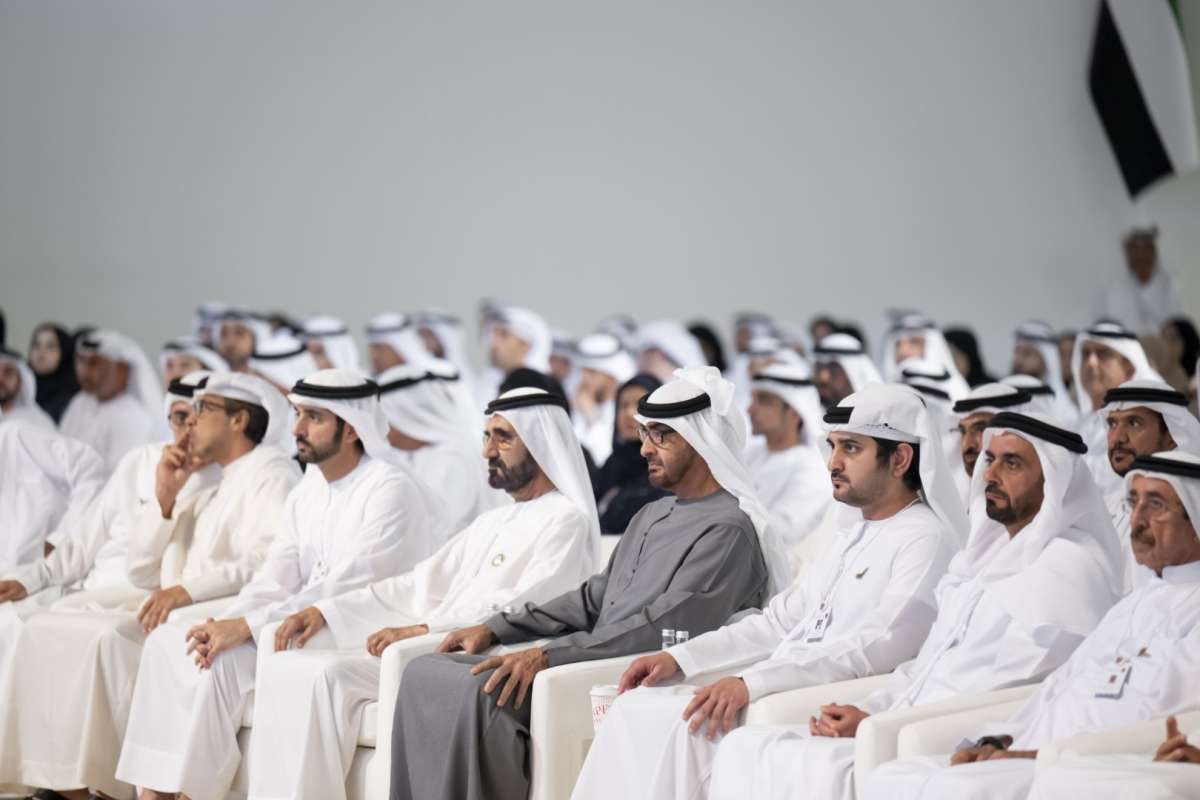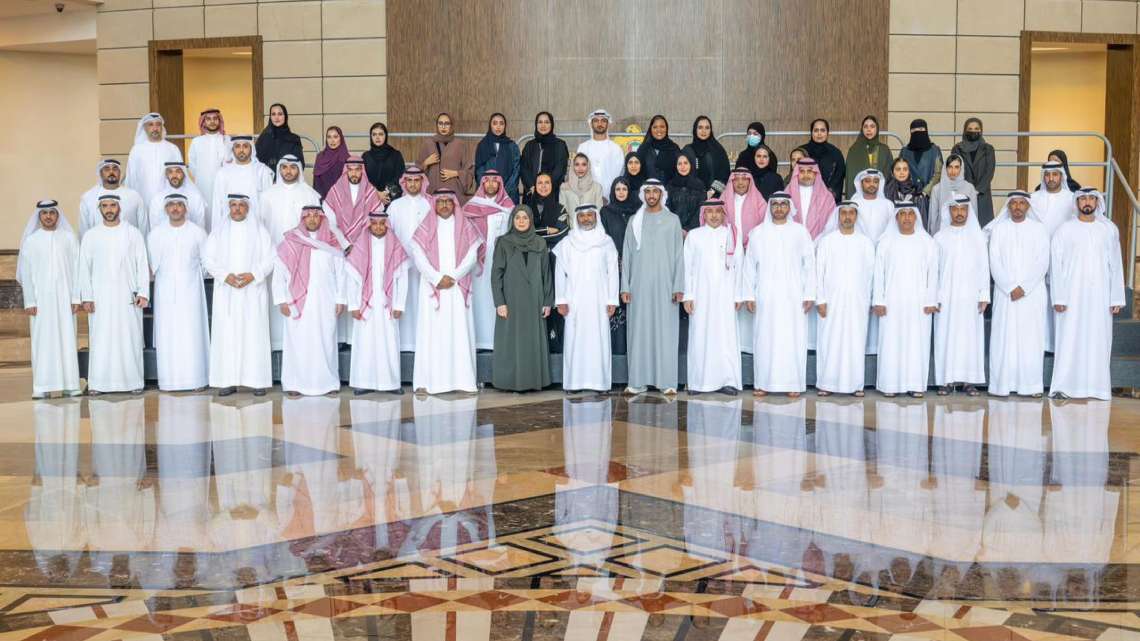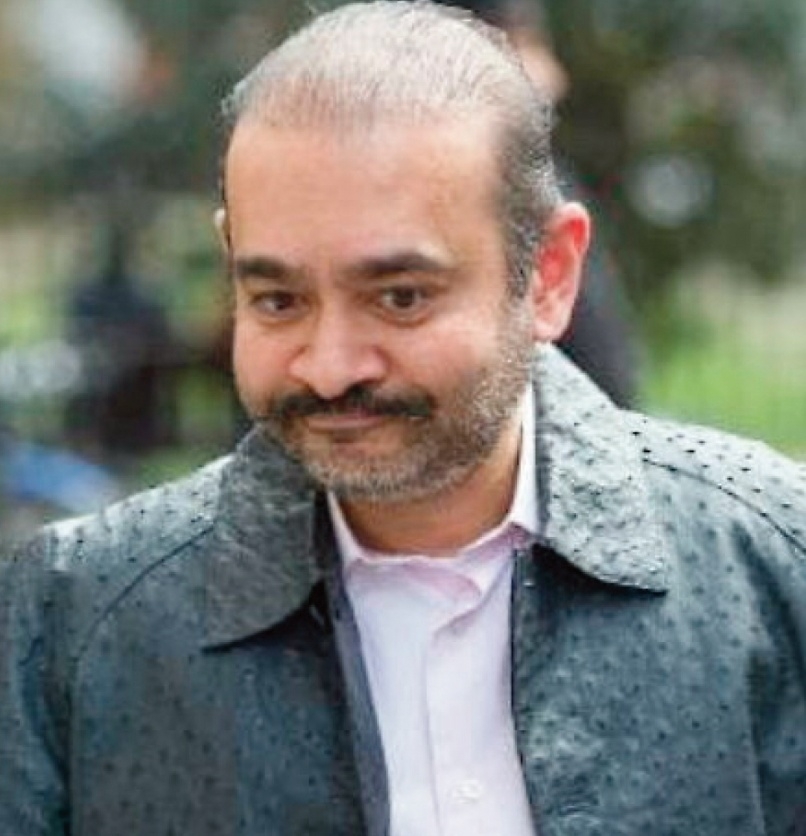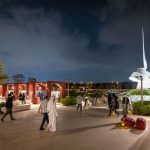The UAE Government Annual Meetings 2022 discussed major topics related to the country’s comprehensive development process, reports Asian Lite Newsdesk
Future of education remains one of our key strategic priorities, said President Sheikh Mohamed bin Zayed Al Nahyan during the closing session of the UAE Government Annual Meetings 2022.
President Sheikh Mohamed and Vice President Sheikh Mohammed bin Rashid Al Maktoum yesterday attended the closing session of the meetings, which saw Ministries, Executive Councils, and various federal and local entities gathering to discuss current challenges and develop a vision for the future of the UAE.
“By harnessing innovation and investing in our people, the UAE’s journey of progress will continue,” Sheikh Mohamed said after the meeting.
On its second day, the meetings discussed major topics related to the UAE’s comprehensive development process, in accordance with the vision and directives of President Sheikh Mohamed bin Zayed Al Nahyan. Priority fields included education, Emiratisation, national economy, digital technology and cybersecurity, among other issues that have a direct impact on the future of development in the UAE; promoting well-being, enhancing the UAE’s competitiveness in all fields, and raising its readiness for the future.
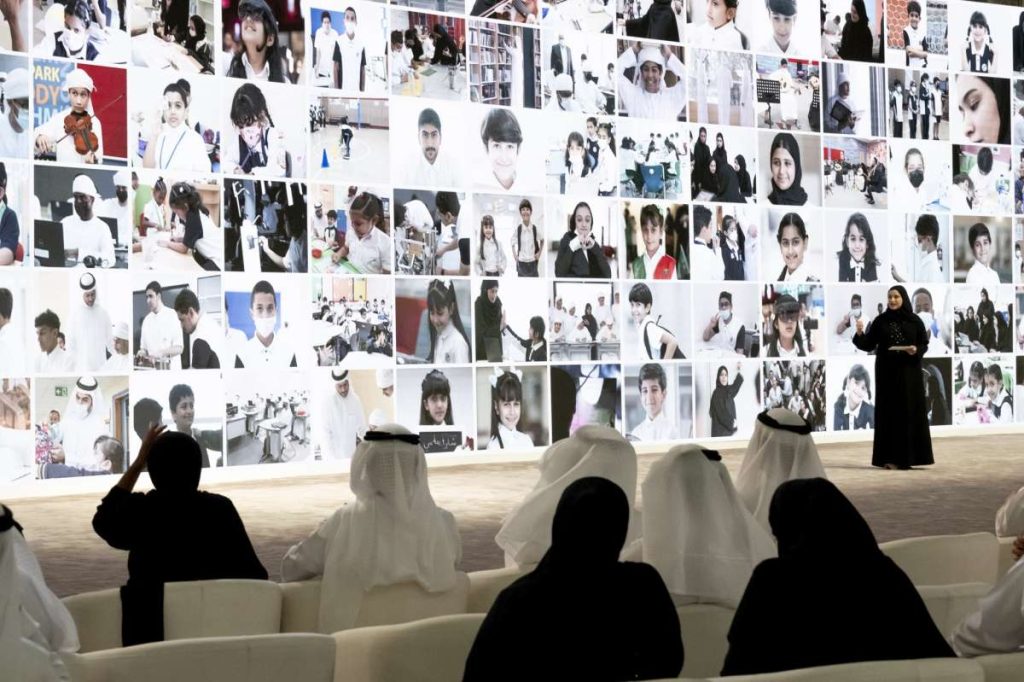
Future directions in education
During the session, UAE Foreign Minister Sheikh Abdullah bin Zayed Al Nahyan examined future orientations in the education sector.
Sheikh Abdullah, who is also Chairman of the Education and Human Resources Council (EHRC), said that the education sector’s strategic directions aim to improve the UAE’s future and competitiveness in different fields by developing a generation that is conscious and empowered with advanced knowledge and skills to support the national economy and meet the State’s objectives.
He added that the current stage is characterised by cooperation and integration in the education sector, with the goal of fulfilling the country’s future vision for this essential sector, which serves as the foundation for the human development drive. “At this stage, our objective is to align the educational system to our needs,” Sheikh Abdullah said.
“We’ve requested the Ministry of Education to focus on the sector’s legislative and regulatory responsibilities and to strengthen the educational curriculum and the outputs of higher education,” Sheikh Abdullah continued. “Additionally, we’ve instructed the Emirates Foundation for School Education to enhance government schools and the learning environment for both students and teachers.”
“By harnessing innovation and investing in our people, the UAE’s journey of progress will continue.” – Sheikh Mohamed bin Zayed
Sheikh Abdullah urged all segments of society to work together to shape the future of education in the United Arab Emirates, including teachers, school administrators, parents, kids, young people, and employees of both public and private institutions. He continued: “I’ve started a practical experience by enrolling my children in a government school… and I will monitor their progress. What I won’t permit in my children’s education won’t likewise be permitted for the citizens of the UAE.”
The session on education witnessed the participation of members of the EHRC, including Dr. Ahmed Belhoul Al Falasi, Minister of Education, Sarah bint Yousef Al Amiri, Minister of State for Public Education and Advanced Technology, Shamma bint Suhail bin Faris Al Mazrui, Minister of State for Youth Affairs, and Sarah Awad Issa Musallam, Minister of State for Early Education. The session participants discussed key future directions for the education sector and the potential challenges it faces.
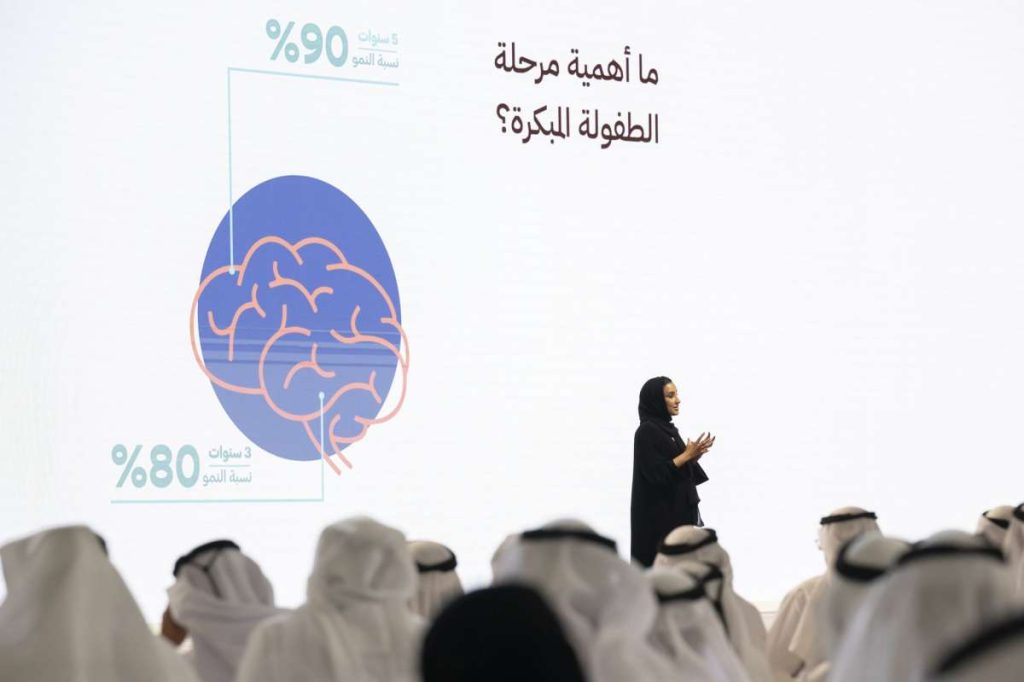
Comprehensive economic partnerships
Abdullah bin Touq Al Marri, Minister of Economy, and Dr. Thani bin Ahmed Al Zeyoudi, Minister of State for Foreign Trade, discussed the importance of the UAE’s comprehensive economic partnerships, and their pivotal role in enhancing the efficiency, agility and strength of the national economy. They also addressed the key pillars of the state’s future directions and economic plans over the next stage, the main objectives of economic and trade agreements with several countries worldwide, and their impact on the UAE’s comprehensive development march.
Emiratisation – New policies and mechanisms
Dr. Abdul Rahman bin Abdul Manan Al Awar, Minister of Human Resources and Emiratisation, and Ghannam Butti Al Mazrouei, Secretary General of the Emirati Talents Competitiveness Council, discussed the latest government policies, mechanisms and strategies in Emiratisation. They highlighted national goals that were achieved, and emphasised the importance of this vital area that is given high priority by the leadership and is fundamental to the UAE’s development march.
Digital economy and future technologies
Omar bin Sultan Al Olama, Minister of State for Artificial Intelligence, Digital Economy and Remote Work Applications, highlighted the efforts of the UAE and its vision in building a pioneering digital economy that combines exceptional skills with the latest advanced technologies. The session addressed the importance of the country’s vision in enhancing economic diversification and consolidating a prosperous economy based on future technologies.


